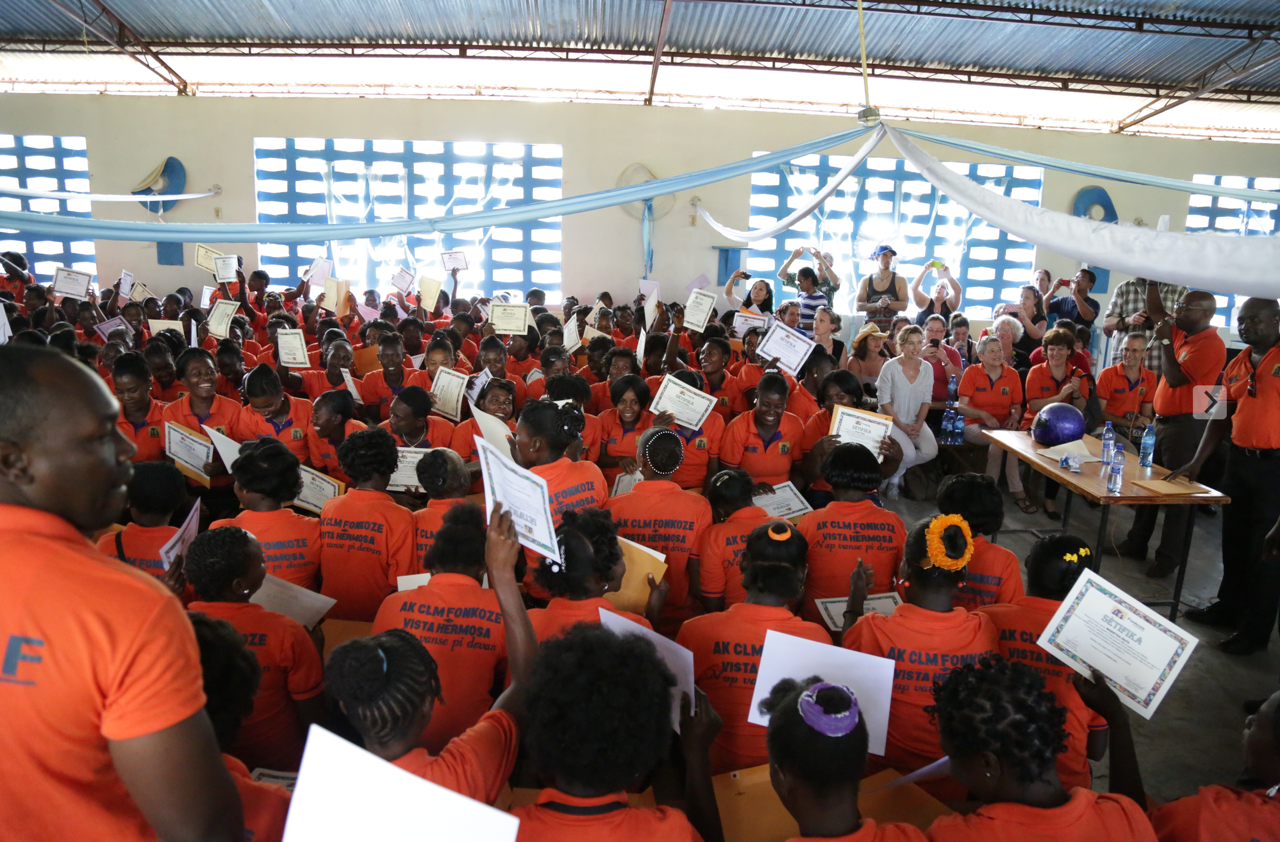Uplift, Amplifier’s collaborative initiative to eradicate extreme poverty, is excited to welcome Anne Hastings to the team. Anne spent almost two decades in the leadership of Fonkoze – Haiti’s largest microfinance institution. She is a Founder of Fonkoze Financial Services, S.A. created in July 2004. In 2008, she was honored at the United Nations because of her commitment to the elimination of extreme poverty.
Recently, Anne had the opportunity, after three years away, to return to Haiti, where she originally came as a volunteer and stayed 17 years. Anne went to see Fonkoze’s remarkable program known as Chemen Lavi Miyò (Pathway to a Better Life), which she founded. This program empowers Haiti’s poorest women to pull themselves and their families from ultra poverty into self-sufficiency. Chemen Lavi Miyò, also known as CLM, is modeled on BRAC’s proven Graduation Approach and is like the programs Uplift was created to help scale and accelerate.

To begin the trip, Anne accompanied a team of Fonkoze implementers and her new Uplift teammates to visit six households, all in different places in their journey out of poverty. At the first home Anne met with Heureuse who was just getting started in the program. Like many women facing extreme poverty, her circumstances were very severe. The ultra poor often lack the basics of life, including food security, health care, reliable housing, and community acceptance.
“For the last 20 years, I have devoted my life to the elimination of extreme poverty. In Haiti, we worked hard to implement a program as effective as BRAC’s program. We now know that while we can’t eliminate poverty altogether, we can eliminate the type of poverty that prevents people from having hope-filled lives and effective futures.”
But signs of a turnaround for Heureuse were already present. Although she hadn’t yet received her assets, she had formed a good relationship with her Fonkoze case manager who will visit her weekly for the next 18 months to provide coaching, stipends, money-making assets, and more. The case manager had already made an impact when he had taken a child to hospital and taught the family to use a water filter he provided.
The next two families Anne visited were also characteristic of a typical ultra poor family. They lived in a very rural setting, far from reliable access to health care and other services. They were nine months into the program but already you could see the progress they had made. They had reasonably housing, the kids were in school, their productive assets were producing income to put food on the table.
Next they visited Sonya and Mimose — both of whom are disabled, Sonya from a stroke and Mimose who can no longer walk on her own. They are both now getting along reasonably well, have small businesses on the side of the road and sit together selling their wares every day.
Anne reports: “Right away you could see the difference. The women were learning new skills and it was inspiring to see how Fonkoze is experimenting with the graduation approach for the disabled, which greatly helped both Sonya and Mimose.”
Sonya was the grandmother of a new baby that had just been born eight days before. She explained to Anne that the baby had been born on the dirt road while the mother was walking miles to a Partners in Health hospital. The new mother asked Anne to name the baby, and she obliged. Anne chose Impatience, a testament to the baby’s eagerness to enter the world.
After visiting a new Partner’s in Health teaching hospital, Anne and the team got to take in a graduation ceremony in which 243 women were celebrated for building the confidence and skills necessary to create a better life for themselves and their families. An incredible 96% of CLM members successfully complete the program and transform their lives.
Uplift is dedicated to ensuring that Graduations like these are the norm in needy communities across the globe.
“When I saw what Uplift had set out to accomplish, I knew this was the kind of global effort I wanted to be a part of. We know the graduation program works in most every context. The next phase is how to scale it up in every country that has this type of poverty. It’s a big goal, but it is doable. I trust that many people will want to be part of this effort. We have an ethical and moral obligation to rid the world of this kind of poverty.”
To read more about Uplift and get involved, please visit joinuplift.org.
Filters